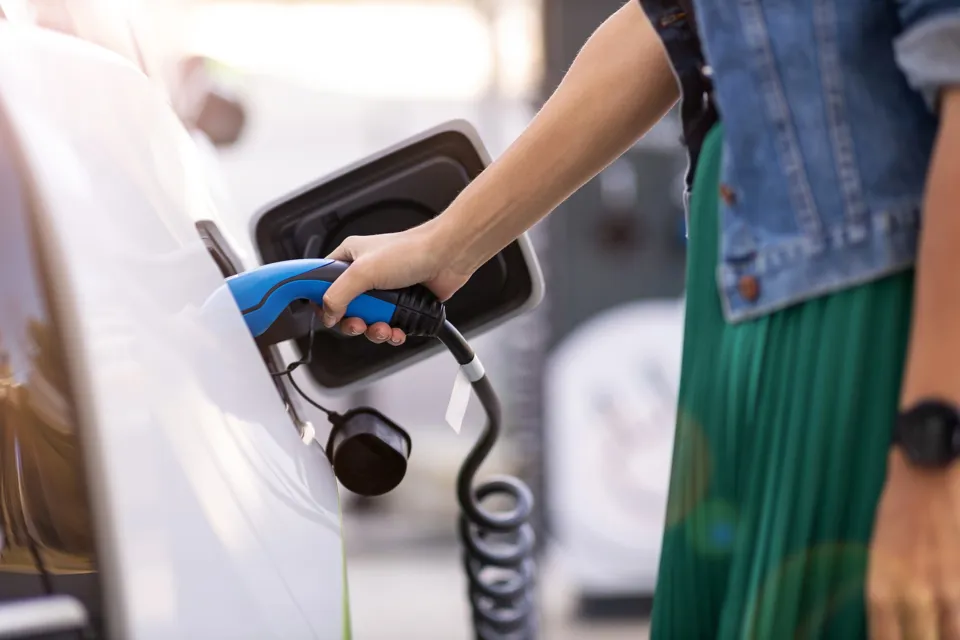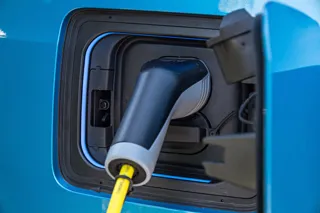The UK has ranked fourth for ‘electric vehicle (EV) readiness’ against 10 auto markets globally, according to EY’s EV Country Readiness Index.
The EV Index ranks 10 countries – accounting for 75% of the global light-vehicle market – based on supply, demand, and regulation.
To become a global leader in the EV transition, the UK must achieve public and private sector coordination and integrated planning, said EY.
David Borland, automotive leader at EY UK and Ireland, said: “While consumer demand for EVs is strong, continued support for the development of battery technology, products and supply chain – and greater investment in the nation’s fragmented charging infrastructure – are key to the UK’s progress.
“With the right industry partners, corporates and policymakers, the UK can hope to de-risk EV investment and rise up the index rankings.”
An alliance of leading fleet organisations is urging the Government to maintain confidence in the battery electric vehicle (BEV) market by providing more clarity on future tax rates.
The first edition of the EY EV Country Readiness Index shows that the largest markets are preparing for an acceleration in e-mobility adoption, but with varying degrees of ambition and urgency.
China, Sweden and Germany are currently leading the rankings because of EV market strengths such as original equipment manufacturer (OEM) presence, policy support and battery supply, said EY.
While the UK is in the top three for the categories of regulatory and demand readiness, ahead of Sweden and Germany, its supply ecosystem requires further development, it said.
The index measures five elements in relation to supply: the domestic presence and future plans of OEMs; energy ecosystem maturity, which includes renewable energy penetration, availability of smart charging and vehicle to grid (V2G) options, and the electricity demand-supply gap; charging infrastructure; EV battery supply; and the prevalence of new battery and EV business models, such as leasing, subscription, battery swapping and finance options.
'Comparatively low’ on consumer perception parameters
EY described the UK as ‘comparatively low’ on consumer perception parameters, such as behaviour towards charging infrastructure availability and intention to purchase an EV as a next vehicle.
The UK’s EV charger to parc ratio – which measures the number of chargers available versus the stock of EV vehicles in use – is 0.08, slightly below the global average of 0.1.
Maria Bengtsson, partner and EV lead at EY UK’s, added: “Charging capacity will need to increase to encourage motorists to purchase EVs in the short term, but also to underpin any future increase in EV use in the UK.
“There is also a need to balance out public, private and workplace charger availability.
“Building up workplace, motorways, destination and public charging options should be a key element of any effort to develop demand by facilitating ease of EV use among consumers.”
Localising battery manufacturing could also help boost the EV market, according to EY.
In 2020, UK battery manufacturing capacity was around two gigawatt hours – 4% of European capacity. However, plans are in development to boost this capacity.
With battery manufacturers planning to co-locate supply chain partners and low-carbon energy production to strengthen the supply ecosystem, more regions of the UK are expected to become a core part of the EV-focused ecosystem.
Bengtsson said: “The need to foster and support the EV ecosystem across these sectors is clear if the UK is to become a global leader in this industry.
“For policymakers, this means continuing to provide consistent, joined-up structures, targets and roadmaps. For corporates, finding the most attractive value pools and business models to maximise return on investment will be key.
“With the right industry partners, corporates and policymakers can play a significant role in de-risking the EV investment outlook helping the UK to become one of the global leaders of the EV transition.”
> Interested in comparing electric vehicle data? Check out our EV tool.
> Interested in ensuring the efficient use of EVs. Check out our dedicated editorial sections: Insight & policy | EV news | Charging & infrastructure | Costs & incentives | Benefit-in-kind | EV case studies | EV road tests























Login to comment
Comments
No comments have been made yet.